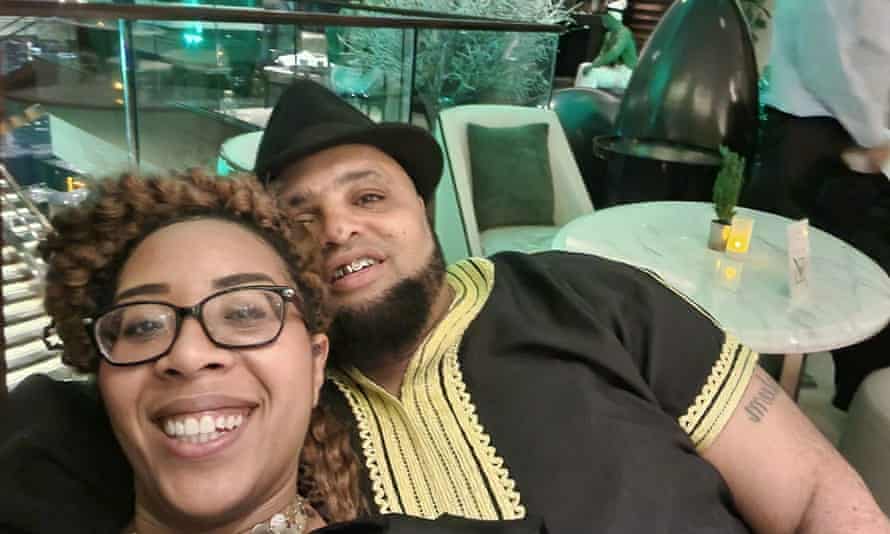If you made a film of Mark Bracewell’s life, audiences would probably look on sceptically and think: “That’s a bit extreme.”
Bracewell grew up on an estate in Moss Side, Manchester, in the 1980s. When he was 13, he watched members of a gang hack a man to death in a pub with a machete. The following year, his friend Benjamin was murdered in a takeaway. The killers were never found. Bracewell thinks it was probably a case of mistaken identity. He was with Benjamin on the day he died. He found out about his murder on the news. “We were kids,” says Bracewell, who is now 44 and lives in Stoke-on-Trent. “But we were living in a war zone.”
He began breaking into cars and selling drugs for the older kids on the estate. “We were manipulated,” he says. “Today you’d call it county lines. Police wouldn’t stop kids.” He joined a gang when he was 13 and became addicted to cocaine four years later.
“As I grew older,” he says, “my heart got tighter and smaller. When you’ve seen someone hacked to death with a machete, you grow numb. It was easier to brush everything under the carpet than deal with it. I took drugs as my way out of reality.”
Aged 26, he robbed a taxi driver at knifepoint – he was high on cocaine at the time and needed money for drugs – and spent three years and nine months in prison. “It’s embarrassing,” says Bracewell, “but it’s part of my journey.” In 2010, he got out of prison, and started to rebuild his life. He worked as a bar manager but still occasionally used drugs, despite his best efforts to quit. Then, on New Year’s Eve 2016, he got involved in a nightclub fight. “I saw the knife coming towards me,” Bracewell says. “And that was the last thing I ever saw out of that eye. Instantly I knew I was blind in my left eye.”
The stabbing was a turning point. As Bracewell was taken to hospital, he cried out to God. “I said,” he remembers, “‘I don’t want to die.’ And I heard God say, ‘You won’t die. I need you to see.’”
After his release from prison, Bracewell moved to Stoke, where he was supported by a Christian charity called Walk Ministries, which works with ex-offenders. “I was at a crossroads in my life,” he says, “and I knew I didn’t want to continue doing what I was doing.” The experience reawakened Bracewell’s dormant faith. “I was a Christian growing up,” he says, “but I never followed it.” Now he is committed.
At Bracewell’s request, Walk Ministries got him a placement doing youth volunteer work, and he became an anti-knife crime campaigner. He sees a certain symmetry in his new line of work. “The crime I went to prison for involved a knife,” he says, “and I was stabbed with a knife. God is using me as a tool.”

He goes into secondary schools to speak about his life, and the mistakes he made. “You get a few kids,” says Bracewell, “who think they know it all, and talk all the way through.” Bracewell has an unorthodox way of grabbing their attention: “I walk up to them,” he chuckles, “and pop my glass eye out, so they get a shock.” That usually quietens them down.
The message of these speeches is a serious one. He talks about the statistics of knife crime, and walks them through the consequences of his own mistakes. “I tell them that every decision has a consequence,” Bracewell says. “What do you want that consequence to be?” In the past week, he tells me, he’s spoken to over 4,000 children in just four days, and is absolutely knackered.
“It definitely connected with the kids,” says Marc Inchley, who recently invited Bracewell into his further education college. “They sat up and listened to him. Not all the speakers we get in have that impact. He’s doing this for the right reasons.”
Bracewell also cofounded an organisation called Blinded Faith, which works with local authorities to mentor at-risk children. He does one-to-one sessions with children who are vulnerable to knife crime. “I can’t get anywhere without building trust,” he says. “If I say to the kids, ‘I’ll be there’ and something happens to them, I have to come through. If they don’t trust me, they won’t give anything back.” When the kids run away from home, or get arrested, Bracewell is often the person they call. He’s driven to Leeds and Wales in the early hours of the morning to collect them. “There are no bad kids,” he says. “Just kids who are making bad choices.”
With all his talks at schools, or driving to meet with his mentees,Bracewell spends a lot of time away from his wife and baby. “That’s the hardest thing,” he says. So for his treat, he asked for a night out in London with his wife Kelisha and son Zion.He loves architecture and she loves food. The Ting Shangri-La restaurant in the Shard skyscraper near London Bridge offered to host the family – but it’s on the 35th floor, and Bracewell is afraid of heights. “It’s all about conquering those fears,” he laughs.
They spent quality time together for the first time in weeks. “I can only do what I do with my wife by my side,” says Bracewell. “So it was for both of us.” He particularly enjoyed seeing his baby in the Shard, looking down on the world below from on high – “that was amazing”.
Want to nominate someone for Guardian angel?
Email us – with their permission – and suggest a treat at guardian.angel@theguardian.com
Post a Comment